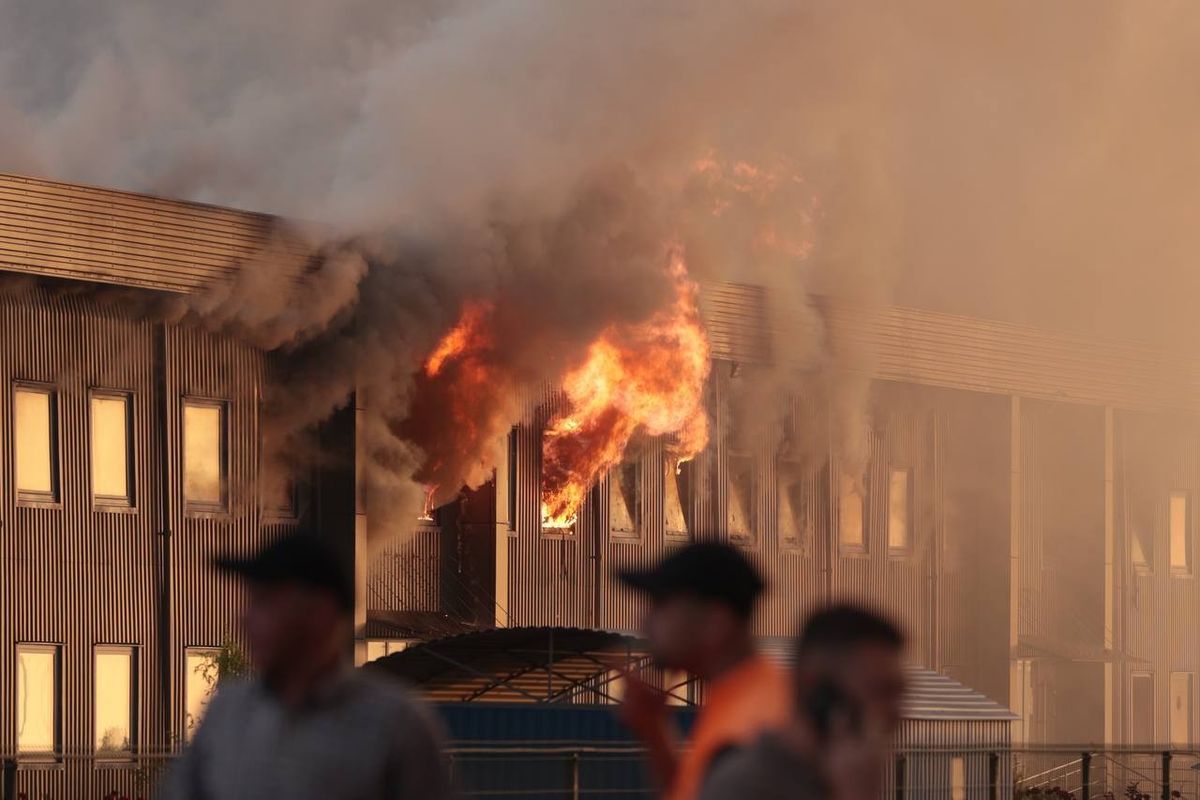As the military prepares for the transition to the next administration, the three service secretaries on Monday detailed their concerns about the challenges posed by weaponized drones, cyber threats, and working with the private sector.
The civilian officials told a gathering hosted by the Center for a New American Security that new technologies and working within severe budget constraints will also be major issues for the next president, as will the major threats of terrorism and foreign powers like Russia, China, and North Korea.
One area that needs to be swiftly addressed by the new administration is the threat from drones, or unmanned aerial vehicles, that are weaponized. Several recent incidents in Iraq and Syria of cheap, small drones with explosives placed on them have proven the damage they can do, Air Force Secretary Deborah Lee James said, pointing to “a week or two ago there was a situation – four killed, not U.S. citizens — from one of these small unmanned systems. So it is a problem.” And earlier this month, an ISIS-linked drone rigged with explosives killed two Kurdish Peshmerga soldiers and injured two French military personnel in Iraq.
And about a week ago in a separate incident, James said, the Air Force was informed in theater that there was a drone in the vicinity “and fairly quickly we were able to bring it down.”
“We brought it down through electronic measures,” she said, noting she would not get into specifics. “So you don’t necessarily have to shoot. There are a variety of ways to attack the problem, and what we need to do is put our best thinking together.”
Improving the public-private sector relationship, from the acquisitions process to the makeup of the workforce, will be crucial to moving the military forward, the officials said. Low-tech, insurgency movements can move very quickly and place new weapons into the field rapidly, for instance, while rogue states like North Korea bypass the traditional research and development process. Each secretary said that getting bureaucracy and the politics of decision making to move at a quicker pace has been at the forefront of their work while in office, and it will need to continue under the next administration.
The “stability” to plan for long-term projects simply does not exist, Army Secretary Eric Fanning noted, as Congress repeatedly passes continuing resolutions—stopgap funding measures—instead of comprehensive annual budgets. But the Army recently launched its Rapid Capabilities Office to field new things to soldiers at a faster pace, he said.
“Rather than getting the pristine solution, the 100 percent solution, out into the field, it’s getting something into the hands of troops that they can actually use, experiment with, refine — because that’s what the adversary is doing,” Fanning said. “… The adversary is figuring out how to do things in a very short cycle and get things into the field and experiment with it in real time. And our soldiers can do that as well, we just need to get that capability into their hands.”
It’s important to promote the ethos of “succeed fast, fail fast,” Navy Secretary Ray Mabus told the audience.
James said her practical advice to the next administration is to target the significant, high-profile programs for key reviews and strong oversight, “and ease up a bit — less review, less oversight, more empowerment” on the smaller programs.
The Department of Defense “still operates like it did in the 1950s, and we’re driving technological change, when there’s all this change happening outside of the department that we can’t even keep up with,” Fanning noted. As for the three threats that worry him the most: cyber, the threat of “these unmanned systems that we’re starting to see proliferate, and PNT — Positioning, Navigation and Timing — GPS— “not having that in a fight, everything we have is pretty much dependent on it one way or another.”
One solution to try to tackle the range of security challenges is in private sector partnerships, the three secretaries said. But it is unquestionably a difficult task, given the inability to compete with the salaries and benefits of a private company, particularly in the cyber realm.
“I think everybody agrees that we can’t build and retain a cyber force like we have done traditionally with other aspects of the force. And so there are many opportunities here to experiment and think differently about the defense workforce. But one of the things we always have — and we do have trouble competing with industry if you just look at on dollars, on salaries, on what we can pay — but we have something no one else has, which is the mission and the challenge that attracts the best out there who want to be a part of defending the United States,” Fanning said.
James highlighted the Air Force’s work in maximizing its use of the Air National Guard and the Air Force Reserve to “attract these topnotch cyber professionals who are in the private sector to also serve part-time in a reserve unit” so that “the individual can have it both ways — they can keep their civilian job but also have this opportunity to participate in this fantastic, very important mission.”
Mabus noted that “our job is to make service, either civilian service or military service, more flexible for them to give them more avenues to get in and move up, and give them more responsibilities and reasons to stay.” He pointed to the Secretary of the Navy Industry Tours as one initiative that tries to address this problem, sending some officers to companies to “get best practices, learn from the best, and then come back and bring that back into the service.”
“You can’t win on salary, but what you can win on is that people are making a difference here,” Mabus said.
Mackenzie Weinger is a national security reporter at The Cipher Brief. Follow her on Twitter @mweinger.















